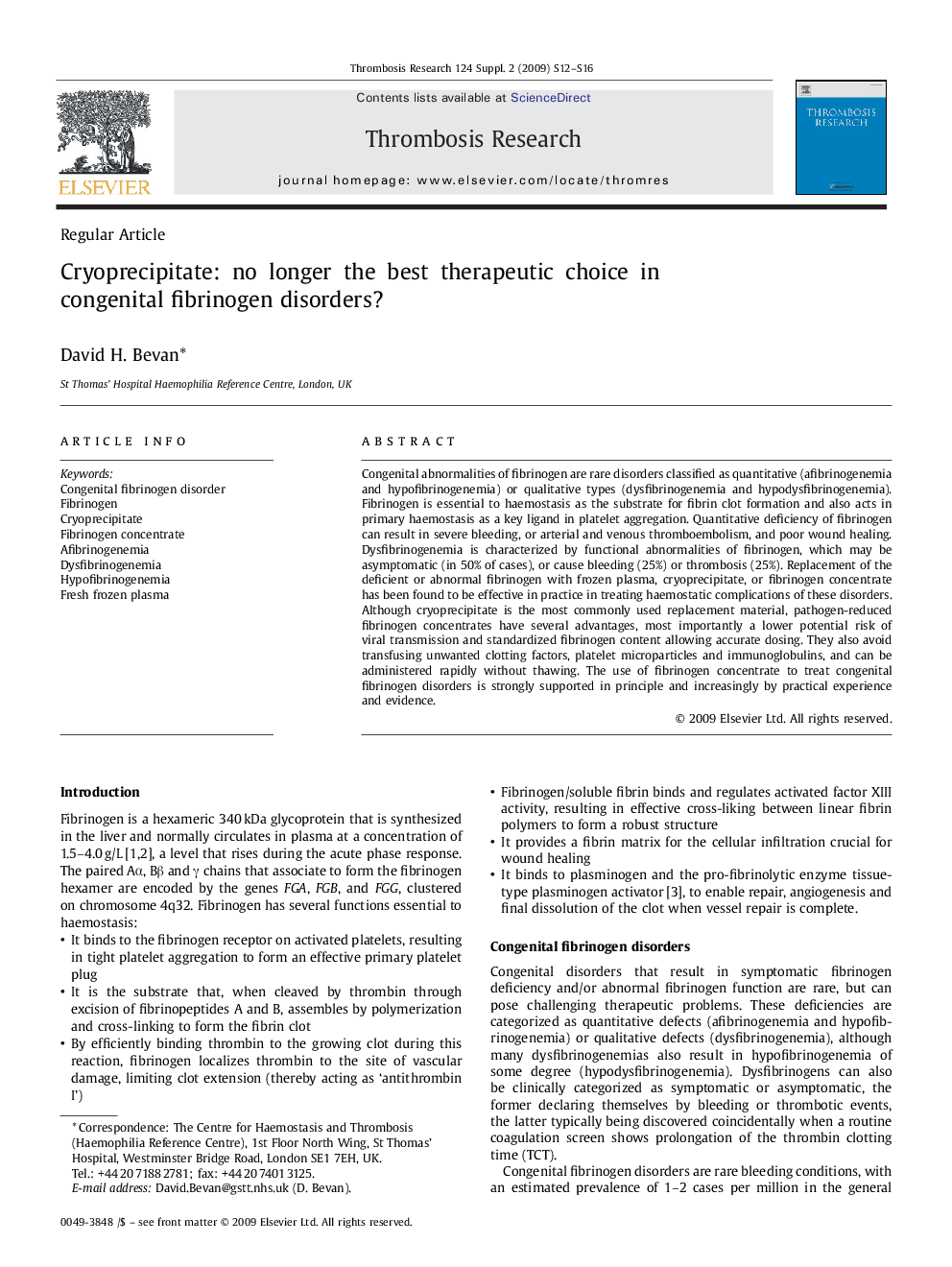| Article ID | Journal | Published Year | Pages | File Type |
|---|---|---|---|---|
| 3029658 | Thrombosis Research | 2009 | 5 Pages |
Congenital abnormalities of fibrinogen are rare disorders classified as quantitative (afibrinogenemia and hypofibrinogenemia) or qualitative types (dysfibrinogenemia and hypodysfibrinogenemia). Fibrinogen is essential to haemostasis as the substrate for fibrin clot formation and also acts in primary haemostasis as a key ligand in platelet aggregation. Quantitative deficiency of fibrinogen can result in severe bleeding, or arterial and venous thromboembolism, and poor wound healing. Dysfibrinogenemia is characterized by functional abnormalities of fibrinogen, which may be asymptomatic (in 50% of cases), or cause bleeding (25%) or thrombosis (25%). Replacement of the deficient or abnormal fibrinogen with frozen plasma, cryoprecipitate, or fibrinogen concentrate has been found to be effective in practice in treating haemostatic complications of these disorders. Although cryoprecipitate is the most commonly used replacement material, pathogen-reduced fibrinogen concentrates have several advantages, most importantly a lower potential risk of viral transmission and standardized fibrinogen content allowing accurate dosing. They also avoid transfusing unwanted clotting factors, platelet microparticles and immunoglobulins, and can be administered rapidly without thawing. The use of fibrinogen concentrate to treat congenital fibrinogen disorders is strongly supported in principle and increasingly by practical experience and evidence.
